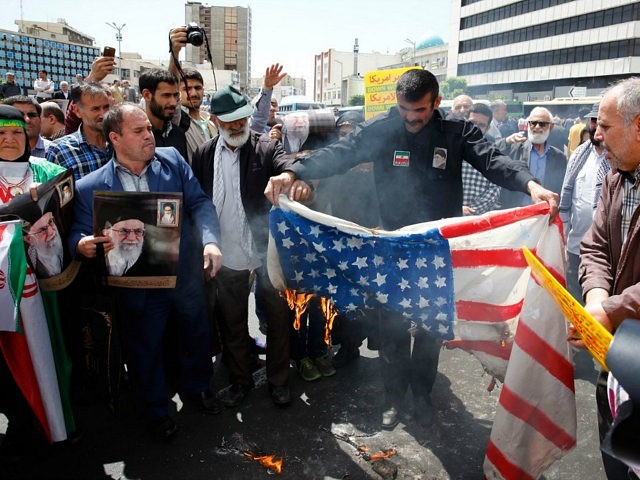Iran announced Thursday it would not stamp the passports of foreign tourists to help the Islamic Republic withstand the impact of U.S. President Donald Trump’s historically crippling sanctions, which have reportedly harmed the country’s tourism industry.
On Thursday, the Islamic Republic’s semi-official Fars news agency quoted Ali Rabiyee, a spokesman for the Iranian government, telling reporters on Wednesday:
President Hassan Rouhani assigned the airport police not to stamp passports of foreign tourists. Taking into consideration the fact that the US is practicing the economic terrorism plans and people who travel to Iran may feel a bit afraid that they may be pressured by the US.
The spokesman indicated that the move might “invite more tourists to Iran.”
Iran’s tourism industry reportedly experienced a boom after the signing of the 2015 nuclear pact between U.S.-led world powers and Tehran. However, President Trump, arguing that the deal was not tough enough on Iran, pulled the United States out of the agreement.
Trump’s decision “to pull the U.S. out of the agreement, which could trigger its collapse and inflame an already tense region, is stoking fears that Iran’s tourism sector could slide back into the doldrums,” the Guardian reported in May 2018.
The American president reimposed restrictions suspended under the deal as part of an unprecedented wave of sanctions imposed on Iran’s energy, banking, shipping, and aviation sectors, among others.
Sanctions have “kept Western airlines from operating in the country and limited transactions with Iran’s central bank,” a move that has negatively impacted the Shiite country’s tourism industry, the Los Angeles Times noted in May.
Los Angeles is home to the largest concentration of Iranians in the world, outside Iran.
In addition to the sanctions, the Trump administration has implemented a travel ban that indefinitely suspends the issuance of immigrant and nonimmigrant visas to individuals from terror-linked countries, namely Libya, Iran, Somalia, Syria, Yemen, North Korea, and Venezuela.
The U.S. Supreme Court upheld the Trump administration’s travel ban in June. Critics claim the ban reflects Trump’s alleged anti-Muslim bias. However, former President Barack Obama instituted similar restrictions against terror-linked Muslim-majority countries, including Iran.
Supreme Court Chief Justice John Roberts’s majority opinion pointed out, “The entry restrictions on Muslim-majority nations are limited to countries that were previously designated by Congress or prior administrations as posing national security risks.”
“Such prior administrations include Obama’s, which selected seven majority-Islamic nations for heightened vigilance: Initially Iran, Iraq, Sudan, and Syria, and two months later, Libya, Somalia, and Yemen as well,” the National Review noted.
On Wednesday, a top U.S. Department of State official told lawmakers Trump’s “unprecedented” sanctions campaign is “working,” noting that it has weakened Iran and its proxies.

COMMENTS
Please let us know if you're having issues with commenting.